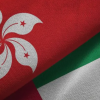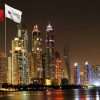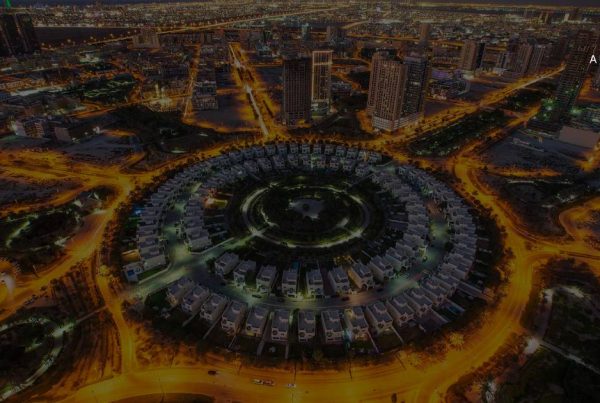Dubai Real Estate Market Surges in 2025 with Off-Plan and Resale Growth
Dubai property sector has extended its remarkable run into 2025, with new data confirming a surge in both off-plan and secondary sales. The combination of strong population growth, foreign investment, and government-backed initiatives continues to fuel momentum, positioning Dubai as a long-term real estate growth story rather than just a cyclical market.
Transaction Growth Despite Summer Slowdown
According to eXp Dubai, property transactions climbed 26% between May and August 2025 compared to the first four months of the year. The Dubai Land Department recorded 75,519 deals during this period, up from 60,110 earlier in the year. Despite a seasonal dip of 4.5% between July and August, the broader trend remains firmly upward. Off-plan activity dominated the market, accounting for 58% of transactions, up from 52.7% earlier in the year, highlighting the appeal of flexible payment plans and competitive launch pricing.
Shift Toward Homeownership
Engel & Völkers Middle East reported a 22% increase in resale transactions in the first eight months of 2025 compared to the same period last year. Rising rents, attractive mortgage packages, and a growing sense of permanence among expatriates are prompting more families and professionals to buy rather than rent. As Daniel Hadi, CEO of Engel & Völkers Middle East, noted: “For many tenants, ownership is no longer aspirational; it’s becoming the preferred choice for long-term security and value creation.”
Record-Breaking August Performance
August 2025 set a new milestone with 17,879 transactions worth AED 42.4 billion — a 17% increase in volume and 12% rise in value year-on-year. Off-plan sales dominated, accounting for nearly three-quarters of activity, while the resale market also strengthened. Larger homes led the way, with four-bedroom sales rising 70% and sales of five-bedroom and larger homes up 63% over the same period.
Price Trends Across Key Communities
Property Monitor data shows average values at AED 1,664 per square foot in August, up 16.3% year-on-year. Villas posted strong growth in lifestyle-driven communities, including Dubai Hills Estate (26%) and Arabian Ranches (23.2%). Apartments surged in emerging areas like Jumeirah Village Triangle (29.3%) and Jumeirah Village Circle (JVC), reflecting investor demand for affordable, design-led developments. These gains underline Dubai’s positioning as a global safe-haven city with resilient price growth.
Rental Yields Remain Globally Competitive
Despite rising prices, Dubai’s rental yields continue to outpace major global markets. In August, average gross yields stood at 6.76%, with apartments yielding 7.12% and villas 4.92%. This compares favorably with cities like London (3–5%), Singapore (3–4%), and New York (5–7%). With leasing volumes down 4% this year and new rental contracts dropping 14%, more residents are turning to ownership as a hedge against escalating rents.
Diverse Buyer Base Driving Demand
International investors from India, the UK, Germany, Egypt, and China remain highly active, particularly in the off-plan segment. Domestic buyers, meanwhile, are increasingly driving resale activity. Financing is also broadening the market, with loan-to-value ratios of 70–80% and competitive mortgage rates around 3.9%. At the same time, cash transactions and developer-backed installment plans continue to keep off-plan demand strong.
First-Time Home Buyer Programme Boost
A major new factor supporting ownership is the First-Time Home Buyer Programme, launched in July 2025 by the Dubai Land Department and the Department of Economy and Tourism. The scheme provides Emirati and expatriate buyers with priority access to new launches, preferential pricing, and bespoke mortgage products. Developers including Emaar, Damac, and Binghatti have pledged to allocate at least 10% of new units priced below AED 5 million to this segment. Leading banks such as Emirates NBD, Dubai Islamic Bank, and Mashreq are also supporting the initiative with lower rates and faster approvals.
Market Outlook
Dubai’s residential market is increasingly defined by two key drivers: global capital flowing into off-plan projects and resident-led demand in the resale segment. With population growth, flexible developer offerings, and new government initiatives lowering entry barriers, Dubai’s property sector is poised to sustain its upward trajectory. For investors, prime communities such as Dubai Hills Estate, Business Bay, and JVC continue to deliver compelling long-term returns supported by strong rental yields and lifestyle appeal.
Conclusion
Dubai’s property market is transitioning from short-term speculative cycles to a more mature, ownership-driven growth story. As Engel & Völkers’ Hadi highlighted, “Dubai’s property market is no longer just about short-term investment cycles. It is increasingly about residents choosing to establish roots here — buying homes for security, lifestyle, and long-term value creation.” With robust demand, supportive policies, and top developers like Emaar, Damac, and Binghatti leading the way, Dubai’s real estate sector is set to define the next chapter of the city’s growth story.










